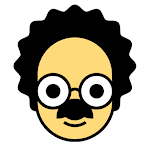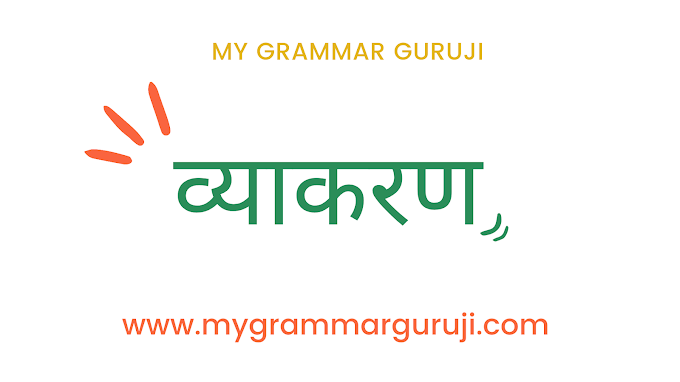What is the Noun?
Noun refer to Persons, animals, places, things, ideas, or events, etc.
In short :- Every name is called noun.
(संज्ञा किसी व्यक्ति, जानवर, स्थान, वस्तु, विचार या घटना आदि का उल्लेख कराती हैं)
(संक्षेप में: - हर नाम को संज्ञा कहा जाता है)
Noun can be a/an :-
( संज्ञा हो सकती/सकता है :- )
Person – A name for a person:
( किसी व्यक्ति का नाम )
Ex:- Rohan, Priya, Monk, Doctor etc.
Animal – A name for an animal:
( किसी जानवर का नाम )
Ex:- Dog, Cat, Cow, Lion etc.
Place – A name for a place:
( किसी स्थान का नाम )
Ex:- India, London, Hospital, Market etc.
Thing – A name for a thing:
( किसी वस्तु का नाम )
Ex:- bat, ball, chair, door, house, computer etc.
Idea – A name for an idea:
( किसी विचार का नाम )
Ex:- devotion, superstition, happiness, excitement etc.
Different Types of Noun:
- Proper Noun
- Common Noun
- Abstract Noun
- Concrete Noun
- Countable Noun
- Non-countable Noun
- Collective Noun
- Compound Noun.
- Possessive Noun.
Proper Noun:
A proper noun is a name which refers only to a single person, place, or thing and there is no common name for it. In written English, a proper noun always begins with capital letters.
(एक व्यक्तिवाचक संज्ञा, एक ऐसा नाम है जो केवल किसी एक व्यक्ति, स्थान या वस्तु को संदर्भित करता है या बताता है और इसके लिए कोई सामान्य नाम नहीं है। लिखित अंग्रेजी में, इसका शुरुआती वर्ण हमेशा बड़े अक्षरों [Capital letters] से शुरू होता है)
Examples : Delhi (it refers to only one particular city), Aman (refers to a particular person),
{उदाहरण: दिल्ली (यह केवल एक विशेष शहर को संदर्भित करता है), अमन (किसी विशेष व्यक्ति को संदर्भित करता है}
Common Noun:
A common noun is a name for something which is common for many things, person, or places.
(एक जातिवाचक संज्ञा, एक ऐसा नाम है जो कई वस्तुओं , व्यक्तियों या स्थानों के लिए सामान्य रूप से प्रयोग होता है)
Examples : Country (it can refer to any country, nothing in particular), city (it can refer to any city like Jaipur, Mumbai, Lucknow, etc. but nothing in particular).
{उदाहरण: देश (यह किसी भी देश को संदर्भित कर सकता है, विशेष रूप से कुछ भी नहीं), शहर (यह जयपुर, मुंबई, लखनऊ आदि जैसे किसी भी शहर को संदर्भित कर सकता है, लेकिन विशेष रूप से कुछ भी नहीं}
Note
So, a common noun is a word that indicates a person, place, thing, etc. In general and a proper noun is a specific one of those.
[तो, एक जातिवाचक़ संज्ञा एक शब्द है जो किसी व्यक्ति, स्थान, चीज आदि को इंगित करता है। सामान्य रूप से और एक व्यक्तिवाचक संज्ञा उन में से एक विशिष्ट है]
Abstract Noun:
An abstract noun is a word for something that cannot be seen but is there. It has no physical existence. Generally, it refers to ideas, qualities, and conditions.
(एक अमूर्त संज्ञा एक ऐसी चीज़ के लिए एक शब्द है जिसे देखा नहीं जा सकता है लेकिन वह है। इसका कोई भौतिक अस्तित्व नहीं है। आमतौर पर, यह विचारों, गुणों और स्थितियों को संदर्भित करता है)
Examples : Truth, lies, happiness, sorrow, time, friendship, humor, patriotism, etc.
Concrete Noun:
Concrete noun is the exact opposite of abstract noun. It refers to the things we see and have physical existence.
(एक मूर्त संज्ञा अमूर्त संज्ञा के ठीक विपरीत है। यह उन चीजों को संदर्भित करता है जिन्हें हम देखते हैं और भौतिक अस्तित्व रखती हैं)
Examples : Chair, table, bat, ball, water, money, sugar, etc.
Countable Noun:
The nouns that can be counted are called countable nouns. Countable nouns can take an article: a, an, the.
(जिन संज्ञाओं को गिना जा सकता है, उन्हें गणनीय संज्ञा कहा जाता है। गणनीय संज्ञाएं यह अपने साथ आर्टिकल (a, an, the) को शामिल करती है)
Examples : Chair, table, bat, ball, etc. (you can say 1 chair, 2 chairs, 3 chairs – so chairs are countable)
Non-countable Noun:
The nouns that cannot be counted are called non-countable nouns.
(जिन संज्ञाओं की गणना नहीं की जा सकती, उन्हें गैर-गणनीय संज्ञाएं कहा जाता है)
Examples : Water, sugar, oil, salt, etc. (you cannot say “1 water, 2 water, 3 water” because water is not countable)
Collective Noun:
A collective noun is a word for a group of things, people, or animals, etc.
(एक सामूहिक संज्ञा वस्तुओं, लोगों, या जानवरों, आदि के समूह के लिए एक शब्द है)
Examples : family, team, jury, cattle, etc.
Collective nouns can be both plural and singular.
(सामूहिक संज्ञाएँ बहुवचन और एकवचन दोनों हो सकती हैं)
Compound Noun:
A noun made up of two or more existing words.
(वह एक संज्ञा दो या दो से अधिक मौजूदा शब्दों से बनी है)
Examples : six-pack, five-year-old, and son-in-law, snowball, mailbox, etc.
Possessive Noun :
Possessive nouns are used to show ownership or possession.
(स्वामित्व या कब्जे को दिखाने के लिए संभावित संज्ञा का उपयोग किया जाता है)
Examples : Aman's book, tina's father, Priya's home etc.
Exercise in Grammar
Point out the Nouns in the following sentences, and say whether they are Common, Proper, Collective or Abstract etc.
1. The crowd was very big.
2. Always speak the truth.
3. We all love honesty.
4. Our class consists of twenty pupils.
5. The elephant has great strength.
6. Solomon was famous for his wisdom.
7. Cleanliness is next to godliness.
8. We saw a fleet of ships in the harbour.
9. The class is studying grammar.
10. The Godavary overflows its banks every year.
11. A committee of five was appointed.
12. Jawaharlal Nehru was the first Prime Minister of America.
13. The soldiers were rewarded for their bravery.
14.Without health there is no happiness.
15. He gave me a bunch of grapes.
16. I recognised your voice at once.
17. Our team is better than theirs.
18. Never tell a lie.
19. Wisdom is better than strength.
20. He sets a high value on his time.
21. I believe in his innocence.
22. This room is thirty feet in length.
23. I often think of the happy days of childhood.
24. The streets of some of our cities are noted for their crookedness.
25. What is your verdict, gentlemen of the jury?
Comment your answers below.
How did you like the post? Please Make sure to comment and share the post to your friends.






आपको पोस्ट कैसी लगी? अगर पसंद आयी तो अन्य दोस्तों के साथ शेयर करें!😊
ReplyDelete(How did you like post? If liked then share with other friends)